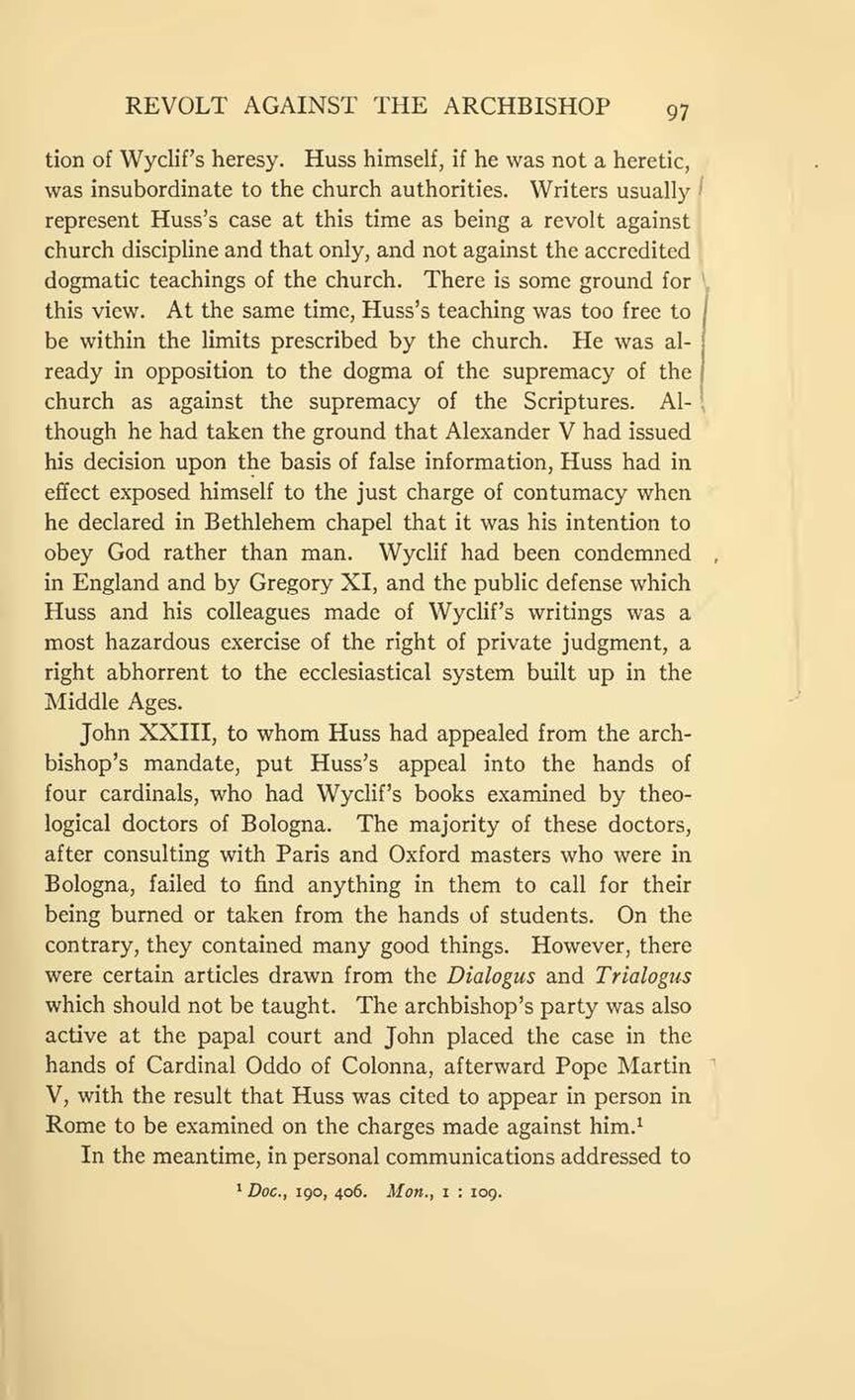tion of Wyclif’s heresy. Huss himself, if he was not a heretic, was insubordinate to the church authorities. Writers usually represent Huss’s case at this time as being a revolt against church discipline and that only, and not against the accredited dogmatic teachings of the church. There is some ground for this view. At the same time, Huss’s teaching was too free to be within the limits prescribed by the church. He was already in opposition to the dogma of the supremacy of the church as against the supremacy of the Scriptures. Although he had taken the ground that Alexander V had issued his decision upon the basis of false information, Huss had in effect exposed himself to the just charge of contumacy when he declared in Bethlehem chapel that it was his intention to obey God rather than man. Wyclif had been condemned in England and by Gregory XI, and the public defense which Huss and his colleagues made of Wyclif’s writings was a most hazardous exercise of the right of private judgment, a right abhorrent to the ecclesiastical system built up in the Middle Ages.
John XXIII, to whom Huss had appealed from the archbishop’s mandate, put Huss’s appeal into the hands of four cardinals, who had Wyclif’s books examined by theological doctors of Bologna. The majority of these doctors, after consulting with Paris and Oxford masters who were in Bologna, failed to find anything in them to call for their being burned or taken from the hands of students. On the contrary, they contained many good things. However, there were certain articles drawn from the Dialogus and Trialogus which should not be taught. The archbishop’s party was also active at the papal court and John placed the case in the hands of Cardinal Oddo of Colonna, afterward Pope Martin V, with the result that Huss was cited to appear in person in Rome to be examined on the charges made against him.[1]
In the meantime, in personal communications addressed to
- ↑ Doc., 190, 406. Mon., 1: 109.
